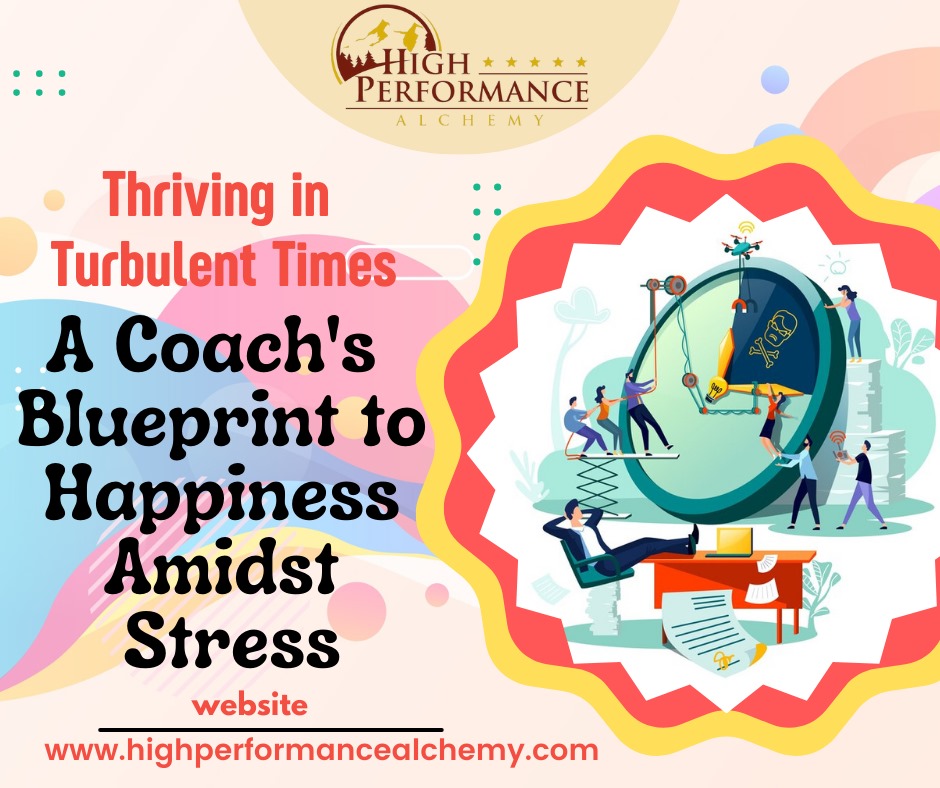In an era marked by rapid changes and unpredictable challenges, stress has become a common part of everyday life. Turbulent times—whether they arise from personal crises, global events or significant life changes—can exacerbate feelings of anxiety and overwhelm.
Emotional centering offers a powerful tool to manage and overcome stress, helping you maintain inner peace and resilience.
But how exactly does emotional centering help you navigate these turbulent times and what happens in your mind when you practice it? Let’s explore.
Understanding Emotional Centering
Emotional centering is the practice of grounding yourself emotionally and maintaining a state of calm and balance, even amidst chaos. It involves being aware of your emotions, understanding their roots and managing them in a healthy and constructive way. This practice is not about suppressing emotions but about acknowledging and processing them with mindfulness and compassion.
The Impact of Stress on Your Mind
Before diving into how emotional centering helps, it’s important to understand what happens in your mind when you experience stress. Stress triggers a series of physiological and psychological responses, often referred to as the “fight-or-flight” response. When you perceive a threat, your brain releases stress hormones like cortisol and adrenaline, preparing your body to react. This response can lead to increased heart rate, heightened alertness and a surge of energy.
While this response is useful in immediate danger, chronic stress can have detrimental effects on your mind and body. Prolonged stress can impair cognitive functions, reduce your ability to concentrate and increase anxiety and depression. It can also disrupt sleep patterns, weaken your immune system and lead to burnout.
How Emotional Centering Mitigates Stress
Emotional centering helps mitigate stress by promoting a state of calm and balance. Here’s how it works:
Enhanced Self-Awareness
Emotional centering encourages you to become more aware of your emotions and how they affect your thoughts and behaviours. By recognizing when you are feeling stressed, you can take proactive steps to manage it. This awareness allows you to identify stress triggers and understand their impact on your mental and emotional state.
Mindfulness and Present-Moment Awareness
Mindfulness is a core component of emotional centering. By practicing mindfulness, you learn to focus on the present moment rather than getting caught up in worries about the past or future. This shift in focus can reduce the intensity of stress and help you approach situations with a clearer, more balanced perspective.
Regulation of the Nervous System
Emotional centering techniques, such as deep breathing and meditation, activate the parasympathetic nervous system, which counteracts the fight-or-flight response. This activation helps lower heart rate, reduce cortisol levels and promote relaxation. As a result, you can achieve a state of calm even in the face of stressors.
Cognitive Reframing
Emotional centering helps you reframe negative thoughts and perceptions. When you are emotionally centered, you can challenge and change unhelpful thought patterns, replacing them with more constructive and positive ones. This cognitive reframing can reduce feelings of helplessness and increase your sense of control and resilience.
Emotional Processing and Release
Rather than suppressing emotions, emotional centering encourages you to acknowledge and process them. By facing your emotions head-on, you can release pent-up stress and prevent it from building up. Techniques like journaling, talking to a trusted confidant or engaging in creative activities can facilitate this emotional release.
Improved Problem-Solving Skills
When you are emotionally centered, your mind is clearer and more focused. This mental clarity enhances your problem-solving skills, allowing you to approach challenges more effectively. Instead of being overwhelmed by stress, you can develop practical solutions and take decisive actions.
Practical Techniques for Emotional Centering
To incorporate emotional centering into your life, consider the following techniques:
1. Mindfulness Meditation
Spend a few minutes each day practicing mindfulness meditation. Focus on your breath and observe your thoughts and emotions without judgment.
2. Deep Breathing Exercises
Practice deep breathing exercises to activate your parasympathetic nervous system. Inhale deeply through your nose, hold for a few seconds and exhale slowly through your mouth.
3. Journaling
Write about your feelings and experiences to process and understand your emotions better. Journaling can provide insights into your stress triggers and help you develop coping strategies.
4. Physical Activity
Engage in regular physical activity to release built-up tension and stress. Exercise is a natural stress reliever and can boost your mood and energy levels.
5. Seeking Support
Don’t hesitate to seek support from friends, family or a coach. Sharing your feelings with someone you trust can provide emotional relief and valuable perspective.
Emotional centering is a powerful practice for managing stress, especially during turbulent times. Prioritizing emotional centering can transform your approach to stress and enhance your overall well-being, leading to a more fulfilling and harmonious life.
If you are looking to overcome stress and cultivate emotional centering in your life, we invite you to reach out to us for a strategy call. Discover how our personalized coaching can help you achieve balance, resilience and emotional well-being. Take the first step towards a more centered and fulfilling life today!
Let’s take the first step together towards a balanced and fulfilling life. We look forward to connecting with you!
Additionally, if your team requires support, visit our website for comprehensive solutions designed to enhance performance and drive success. We are dedicated to helping individuals and teams achieve their goals through expert advice and strategic planning.
www.highperformancealchemy.com
Don’t hesitate to connect with us and take the first step towards a brighter future.

